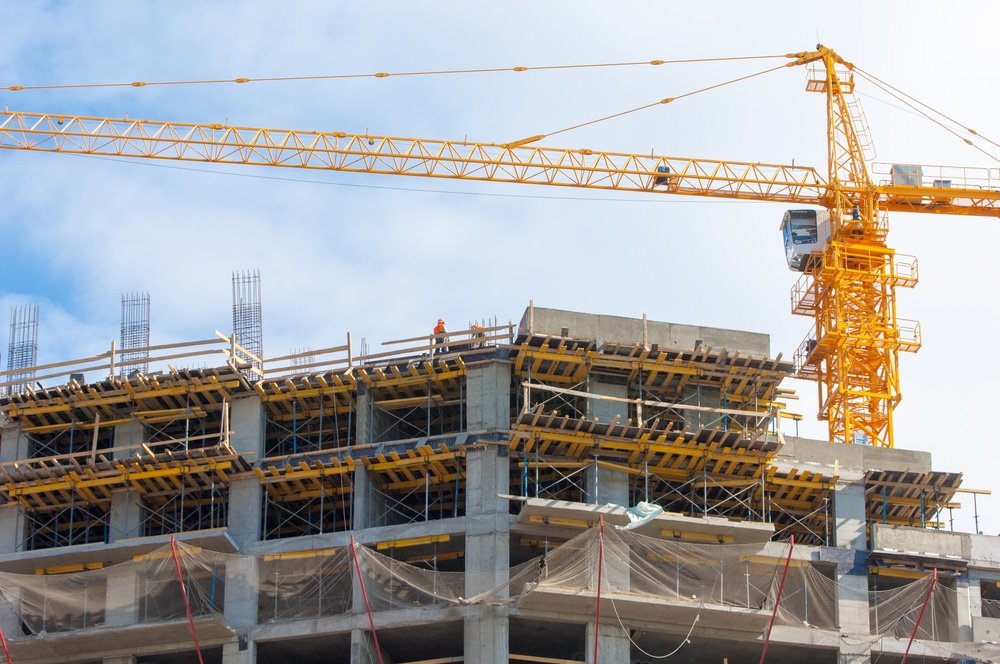Completing a construction project on time is one of many factors that contribute to a project’s success. There are other key performance indicators that project managers can use to determine whether a project is successful. These key performance indicators are:
- The budget: If the project was completed within the estimated budget, it was a success.
- Return on Investment: If the return on investment is as predicted, the construction project was successful.
- Quality: A construction project is successful if it meets the quality desired by the client.
However, keeping a project on track is one of the most common challenges faced by general contractors, as many projects are negatively impacted by delays.
But what causes construction delays, and how can you mitigate them?
What is construction delay?
In construction, delay can be defined as the extra time required to complete a project. Delays can be caused by several factors, one of them being a change in project scope. A project scope is a construction document containing information about the project, such as the objectives, work schedules, deliverables, and tasks.
Another factor that can cause construction delays is poor design. This primarily occurs when the product owner fails to peer review the plan with other architects and engineers. When a peer review is done, it becomes easy for design flaws to be detected early.
Construction delays can also be caused by other factors outlined below.
Cause of construction delays
Poorly planned work schedule
The primary purpose of a work schedule is to regulate the time in which a given task should be completed. In most cases, the job is assigned specific resources, and a suitable time frame is given for completion. If the work schedule is erroneous, the tasks will not be completed on time.
Project complexity
A complex project comes with a high level of uncertainty because of its magnitude. The bigger a construction project, the more complicated it is because it involves thousands of moving parts. Also, because complex projects take a long time to complete, they are affected by material prices, inflation, and exchange rate challenges.
If these factors are not adequately planned for in the work schedule and budget, they can cause construction delays.
Inaccurate cost estimates
Another important factor that causes construction projects to be delayed is using inaccurate cost estimates. Erroneous cost estimates can be caused by several factors, such as using Excel spreadsheets and faulty units of measurement.
Inaccurate costs can also be caused by not factoring in inflation and the cost of importing machinery, such as duty.
Change order
A change order is a document that requests the removal or addition of extra work to the scope of work. If there are numerous or major change orders, the project can be delayed because the design becomes more complex to implement.
Mitigating construction delays
The best strategy to mitigate construction delays is to use an AI-powered construction optioneering platform. This type of platform handles complex construction projects such as building railways, highways, and tunnels. It creates multiple project simulations to identify risks and create suitable alternatives.
When an alternative is created, the platform can quantify the impact of the alternatives and indicate the cost required to implement them.
Effects of construction delays on projects
Cost overruns
The most common effect of any construction delay is the project experiencing cost overruns. During the preconstruction phase, the cost estimator predicted that the project would last for a given period. Therefore, the estimator only did budgeting for the estimated project’s lifeline, and if the project exceeds this timeframe, it experiences overruns.
Overruns are mainly experienced when dealing with labor wages and the cost of renting out equipment.
Disputes
When handling a project that is affected by delays for one reason or another, you could be involved in a dispute with the project owners.
Therefore, it is in your best interest to ensure that you have a clear contract that exonerates you from delays caused by factors out of your control.
Time overruns
A project can be halted for months when there’s a delay due to a lack of critical equipment such as cranes or heavy machinery. This time overrun will cost you money because you will still be paying for labor. Time overruns can also affect the developer’s financial muscle, especially if the developer is bank-financed.
Abandonment
Another risk associated with construction delays is that the project owner can decide to abandon the project. Project abandonment can be caused by several factors, the most common being that the project is too expensive to salvage. This is especially likely if there is a design flaw requiring major reworks to be done.
Reputational damage
When you handle a mega construction project, and it is affected by delays, you risk tarnishing your construction company’s reputation.
If you have a reputation for not completing a project on time, clients may not want to work with you because they will assume you will jeopardize their project.
Decreased client satisfaction
As a building contractor, it is in the best interest to ensure that your clients are happy. Referral marketing is better because you get more construction clients without marketing your business.
A happy client will give you positive reviews and help your business thrive. However, if there is a delay, the client may get agitated with your work and negatively review your services.
Lastly, depending on the type of contract you have signed, the delay might reduce your profit margins. Therefore, it is in your best interest to ensure delay is minimized. Use modern technologies to identify risks and find options in case of a delay.

